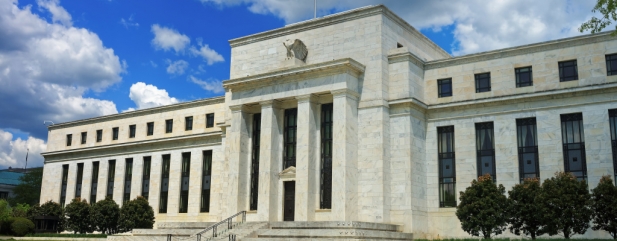Archived article
Please note that tax, investment, pension and ISA rules can change and the information and any views contained in this article may now be inaccurate.
US Federal Reserve tweaks monetary policy goals

AJ Bell is an easy to use, award-winning platform Open an account
We've accounts to suit every investing need, and free guides and special offers to help you get the most from them.
You can get a few handy suggestions, or even get our experts to do the hard work for you – by picking one of our simple investment ideas.
All the resources you need to choose your shares, from market data to the latest investment news and analysis.
Funds offer an easier way to build your portfolio – we’ve got everything you need to choose the right one.
Starting to save for a pension, approaching retirement, or after an explainer on pension jargon? We can help.
Please note that tax, investment, pension and ISA rules can change and the information and any views contained in this article may now be inaccurate.

US Federal Reserve chair Jerome Powell delivered what many Fed watchers had been expecting at the annual Jackson Hole speech on 27 August, when he signalled a change to monetary policy goals.
In future the central bank will target average inflation, which means accepting periods of overshooting and undershooting the 2% target. Importantly the bank said it wasn’t tying itself to any formula, moving it away from a data driven approach.
Powell acknowledged that the historical trade-off between wage growth and inflation had weakened which means the Fed would be less likely to hike interest rates when the economy is operating at or close to full employment capacity.
The news pushed longer dated bond yields up (and prices down) as these are more sensitive to higher inflation, steepening the yield curve. This in turn gave a green light to the banking sector which jumped over 2%. Banks make a higher interest rate margin when the yield curve steepens.
As for the stock market, some strategists continued to push the argument that lower rates for longer was good news for stocks, and growth stocks in particular. However, this logic seems flawed to value investors who point out that a steepening yield curve and higher inflation are exactly what they need to perform.
These articles are provided by Shares magazine which is published by AJ Bell Media, a part of AJ Bell. Shares is not written by AJ Bell.
Shares is provided for your general information and use and is not a personal recommendation to invest. It is not intended to be relied upon by you in making or not making any investment decisions. The investments referred to in these articles will not be suitable for all investors. If in doubt please seek appropriate independent financial advice.
Investors acting on the information in these articles do so at their own risk and AJ Bell Media and its staff do not accept liability for losses suffered by investors as a result of their investment decisions.
The value of your investments can go down as well as up and you may get back less than you originally invested. We don't offer advice, so it's important you understand the risks, if you're unsure please consult a suitably qualified financial adviser. Tax treatment depends on your individual circumstances and rules may change. Past performance is not a guide to future performance and some investments need to be held for the long term.
 magazine
magazine